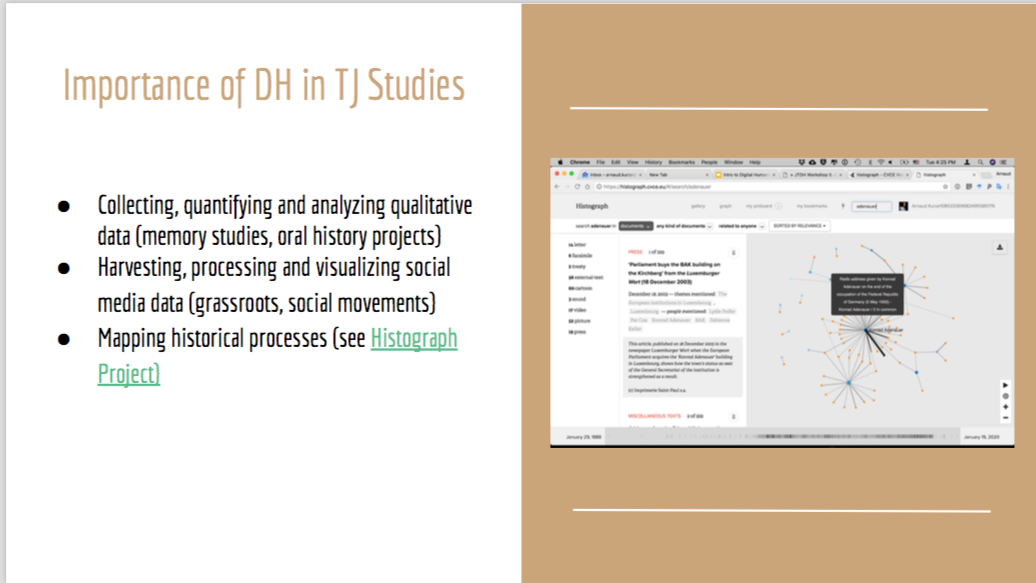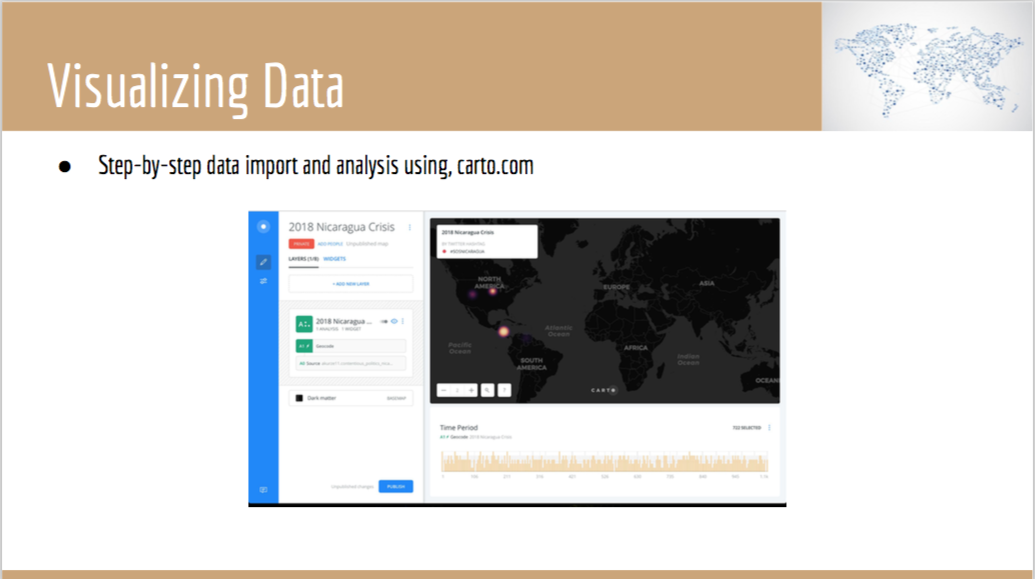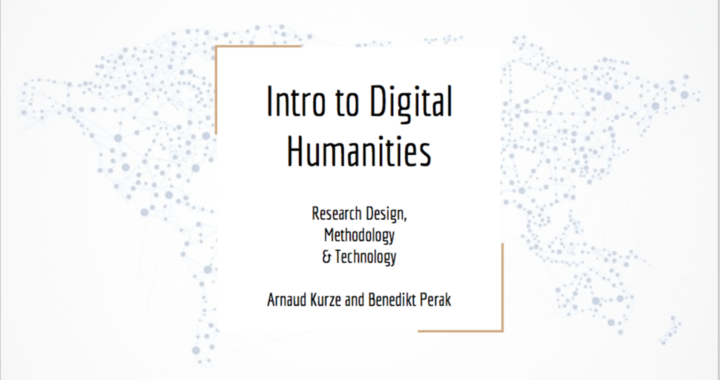For the sixth annual Cres Summer School on Transitional Justice and Politics of Memory, researcher Benedikt Perak (University of Rijeka) and assistant professor, Arnaud Kurze (Montclair State University) gave an introductory lecture on the role of digital humanities for transitional justice and memory studies.
Students and participants had an opportunity to learn about the latest research application from the FRAMNAT project findings as well as get some hands-on experience with so-called “freemium” software, such as carto.com to visualize smaller, customized datasets for group project.

Humanistic social sciences have slowly started to integrate big data and innovative research methods to map and analyze sociopolitical processes. The lecture by both scholars was an incentive to introduce a non-expert audience to the benefits of digital methods and data visualization in social science research.

